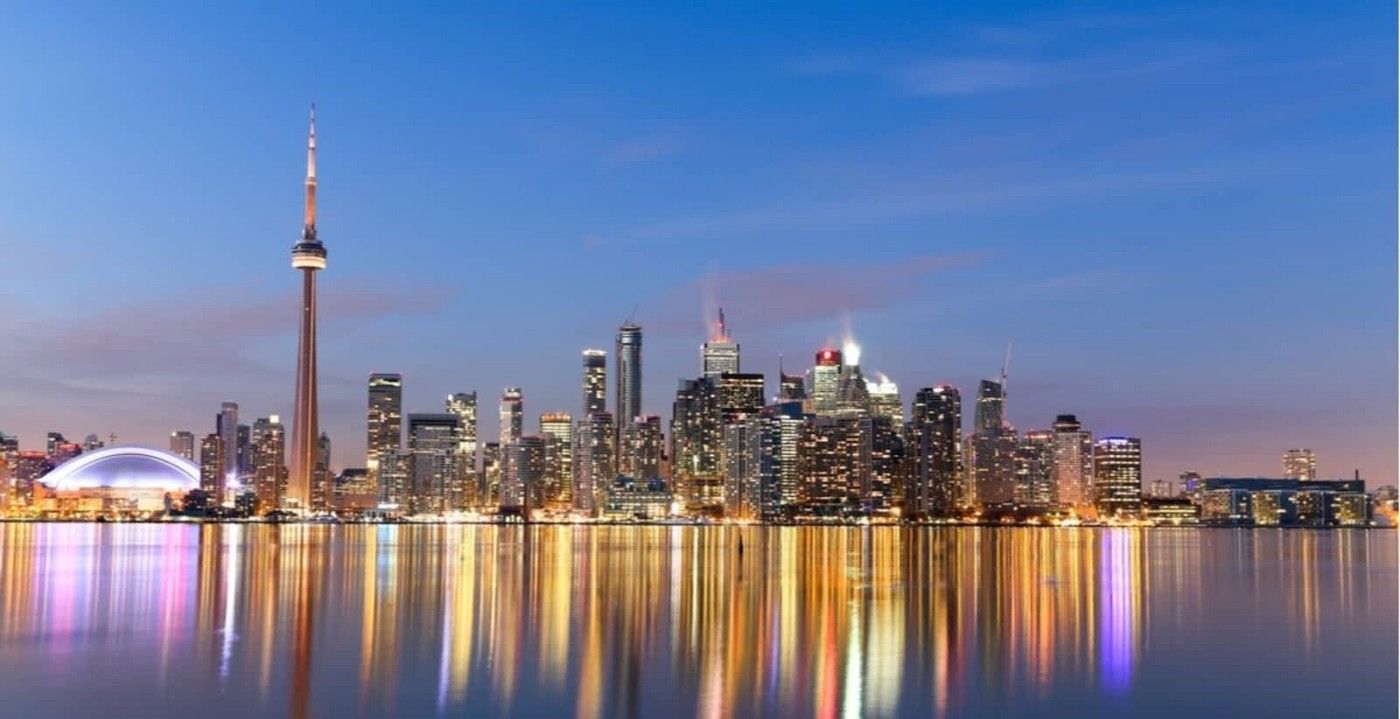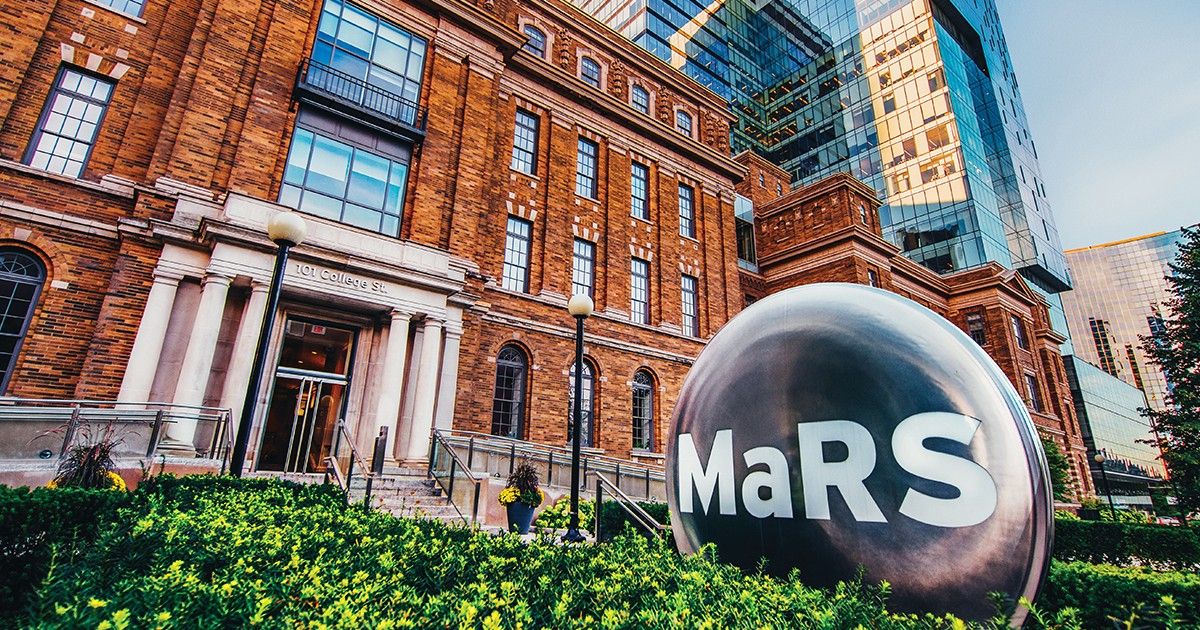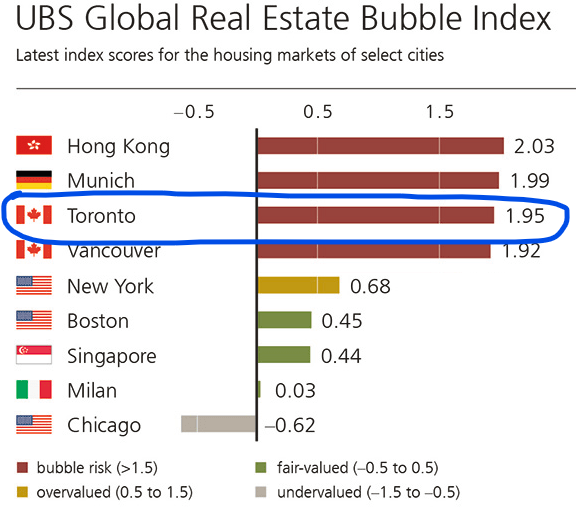Why Toronto Is Primed for Greatness

I am not one to peddle sensational predictions but I came across one observation recently that I found hard not to share. Toronto, Canada’s version of New York City, Chicago, San Francisco, London, Philadelphia, (anything else?) all bundled up into one metropolis, is a city that has a lot of potential. As Anthony Bourdain once described it, “It’s not a good-looking town. You’ve got all the worst architectural fads of the 20th century. That’s crypto-fascist Bauhaus. Mussolini would have been perfectly at home in that one. Looks like every public school in America. And every third-tier public library.” But there’s something about that the city that makes it primed for greatness. Here is why.
The claim

First, it’s the science. Having done some introspection as to why all of the coolest technologies keep coming out of a little known 50 square mile stretch called Silicon Valley, just about every major global city is now on a mission to turn itself into the next hotbed for technology. But they are putting the cart before the horse. They are expecting the science to show up once enough cash gets deployed. That’s typically a failed strategy as localized policy spurts have had mixed success. There have been a number of initiatives over the years that have been ridden in failure — look no further than the Big Dig, Solyndra, and the Kansas tax-cuts, as a mixed-bag of rah-rah programs that ultimately led to some unintended consequence. Instead, Toronto already has the science. And though the government may have contributed to the ecosystem’s development, it was a complementary force to a pre-existing, thriving science community, not the key catalyst.
Second, the concentration of resources. The blend of capital, technology, and academia in Toronto, is one that resembles Silicon Valley more closely than your typical town. Most metropolises usually reflect a booming finance industry — think New York City, London, and Hong Kong. They have a couple of good universities, a strong medical industry, and technology companies have a symbolic office in the city — one that is more akin to an under performing flagship store on Fifth Avenue than a serious innovation hub. Toronto’s mix is healthy. Though not quite at the level of New York City or London, the finance industry in Toronto is solid. The medical industry is stronger than average, housing some of the best hospitals in the world. And the technology industry, as covered in the above paragraph about science, is ever present. The blend of industry is not skewed to any specific one resulting in a well-balanced economy. Some folks I hear that come into New York City often praise it for having such good diversity of professions — but it is my personal opinion that they are grossly underestimating the influence of the city’s financial sector.
Third, labor. It is the natural corridor for most Canadian immigrants to come through, almost like Ellis Island was to the United States in the 1900s. But the skill quality of immigrants is also very high. I do not believe that having high-skilled labor is the be-all and end-all — in fact I very much disagree with that — but I do that think it is a necessary factor for any serious economic boom. I also found through conversation and research that Toronto is a hotbed of hungry engineers, both software and hardware. If you are on the East Coast, you may very well be familiar with the drought of hardware engineers. And the software engineers are increasingly those that have made career jumps looking for an opportunity, not those that have been seriously trained in the field.
What can go wrong

First, real estate prices. Real estate prices could keep some people away. That has been the narrative for some of North America’s biggest cities, mainly San Francisco and New York City, but despite some population churn, both are still largely seen as necessary stops for any technologist or tech financier. So even as it may dissuade some talent, the hungriest and savviest will find a way to stay.
Second, the Canadian government. Canada has a funny way of doing business, and while it looks like the US and swims like the US, it’s not the US. It is a quasi-capitalist state and while it is the same force that I referred to above as a complement to innovation it also runs the risk of distorting it. One such characterization of the Canadian government’s role in the healthcare sector in the current edition of the Rotman Management Magazine suggests that “despite high levels of spending, Canada has failed to effectively incentivize and foster innovation or efficiency.” Point being, if the United States is “real life”, then Canada sometimes feels like Disneyland.
Neighborhoods, after all, are where true human connections get made. Skyscrapers, are optimized for execution and efficiency, not serendipity.
Third, the city-life is a grind. What cities often forget is that they are almost by definition anti-competitive. Cities are great for incumbents but are pretty terrible for newcomers. For one, the real estate prices mentioned before ultimately are a factor, even if you are able to stay. Everything has an opportunity cost, so the chances that you just have a garage that you can squat in for a short while (and by garage I mean any extra space to do anything that isn’t sleep), is unlikely. And if you are one that is able to afford a garage, chances are that you won’t be taking on the risk of starting your own company. And in the off chance that you are able to afford a garage, and you are starting your own company, well then congratulations, you are probably an off-shoot of the (pan-) American dream, not the dream itself. Thankfully there is plenty of activity around the city with a Silicon Valley-like outlet for space. Nearby Waterloo and Mississauga most notably have housed a number of technology companies over the years and continue to do so today. Touring the city a few weeks ago, I was told that the Toronto is more like a quilt of neighborhoods rather than a core with peripheries. I think that is a fine but important point. Neighborhoods, after all, are where true human connections get made. Skyscrapers, are optimized for execution and efficiency, not serendipity.
My hunch

I think most big urban tech initiatives will largely fail. City governments, along with big corporations, are playing catch-up — they are not actually leading per se. I am a little torn as to where Peter Thiel’s conjecture falls into all of this — “I don’t think there is a single other place, it is not a specific city or specific country, but I think in general there is much opportunity outside of Silicon Valley.” The view is one that is vague enough that is almost guaranteed to be right, but the idea that any other location can replicate the setup of Silicon Valley is a tougher ask than suggested. For the reasons I laid out, I believe that Toronto at least has the right ingredients. So I am bullish on the city’s decade. Google’s “city of the future” will be exciting. The city’s 5G rollout will also be exciting. And the loud immigration sucking sound from The North is something that the US tech industry will need to be mindful of. Looking forward to my next visit.

